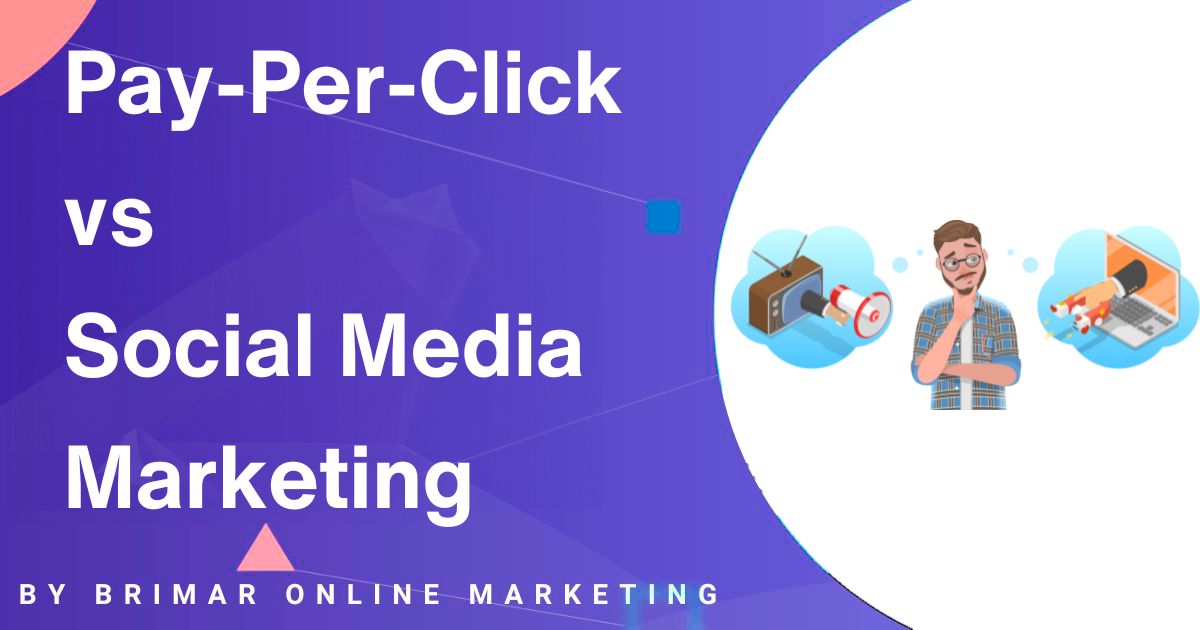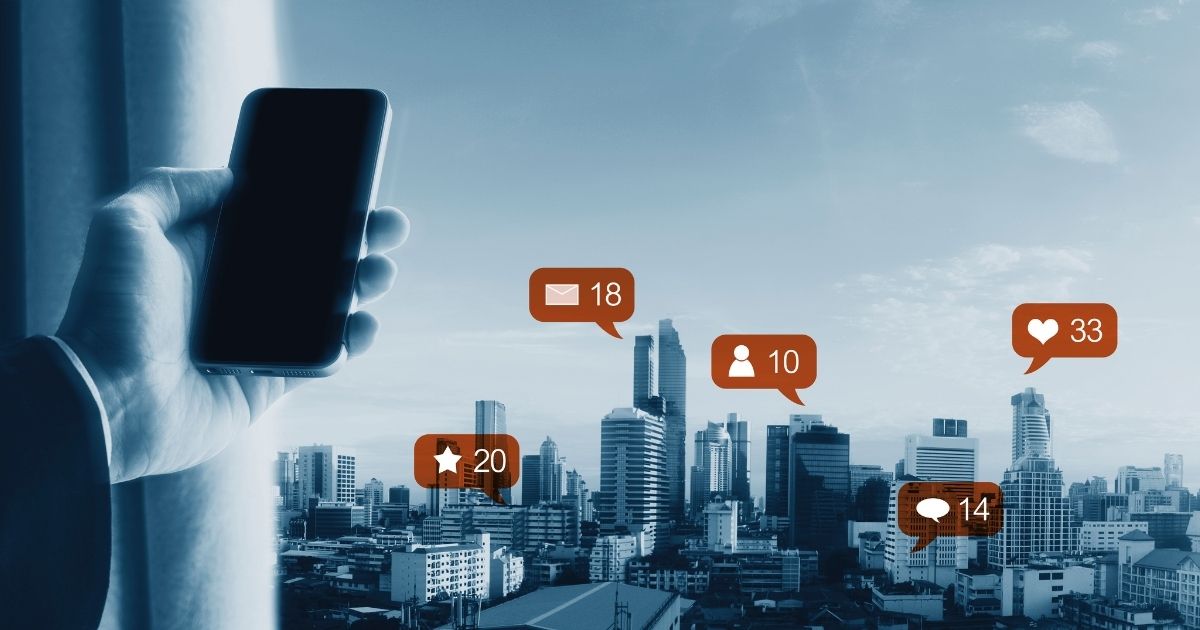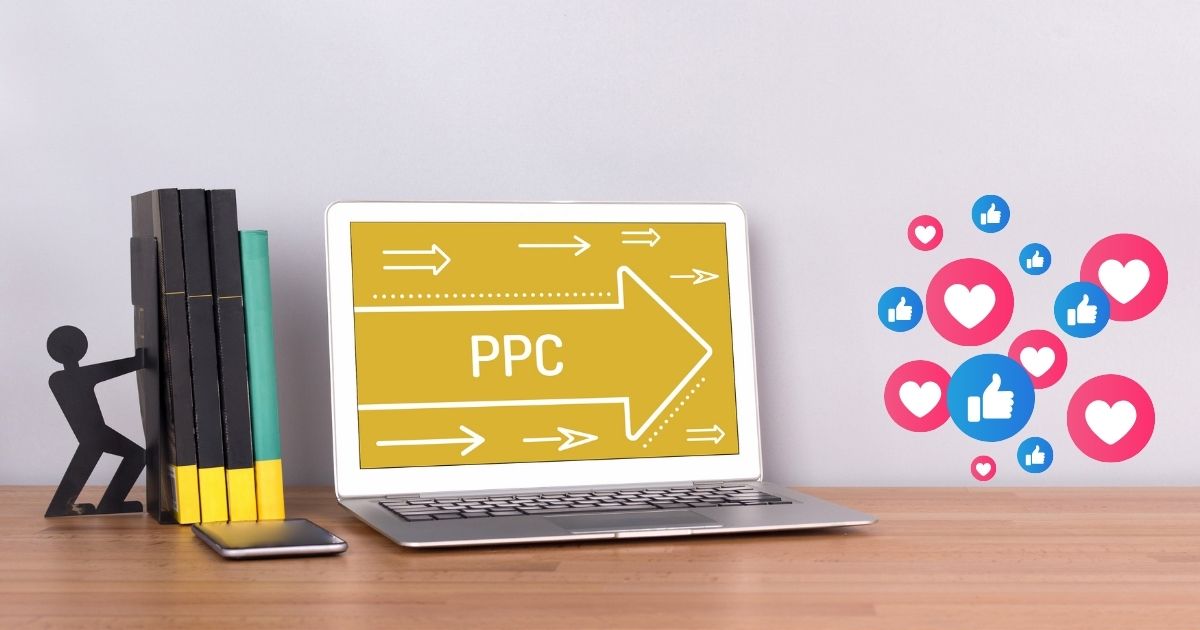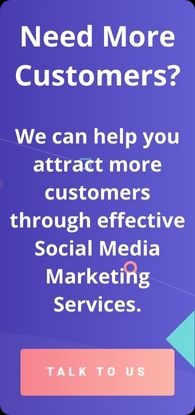
When growing your business online, PPC (Pay-Per-Click) advertising and social media marketing are the most powerful tools you can use.
These methods have helped countless businesses drive traffic to their websites and get their brand in front of the right people.
But here’s where the challenge comes: choosing which suits you.
Both PPC and social media advertising offer unique advantages.
They can boost your online presence, increase brand awareness, and connect you with potential customers.
However, the critical difference between them lies in how they work and what business goals they serve.
PPC might be your go-to if you want quick results and highly targeted leads.
On the other hand, if you’re looking to build lasting connections and create engagement around your brand, social media marketing could be the better fit.
The choice comes down to your marketing budget, goals, and where your audience spends their time.
Whether you’re after immediate results or aiming for steady, long-term growth, both strategies have their place in a solid digital marketing plan.
What is PPC Advertising?
PPC (Pay-Per-Click) advertising is an online advertising method through which businesses pay a fee each time their ad is clicked.
It’s a way of buying site visits rather than organically earning them.
These ads can appear on search engines like Google and Bing and across display networks that show visual ads on other websites.
Two popular formats in PPC are search ads and display ads.
Start Attracting Customers Through PPC Advertising Today!
We can help you create PPC campaigns that attract customers. Our services include bid management, keyword management, landing page performance reviews, and more.
Search Ads vs. Display Ads
Search ads are text-based ads that appear on search engine results pages (SERPs) when someone types in specific keywords.
These ads appear at the top of the page, giving businesses the chance to get in front of people actively searching for products or services.
On the other hand, display ads are more visual and appear on websites within a display network.
They may not target the user’s immediate intent but are a great way to build brand awareness.
How PPC Ads Work on Search Engines
Platforms like Google Ads and Bing Ads allow businesses to target potential customers based on specific keywords they’re searching for.
Let’s say you run a local bakery.
If someone searches for “best cupcakes near me,” a PPC ad can put your bakery at the top of those search results.
This is what makes PPC so powerful; it targets user intent directly.
PPC vs. Organic Search Results
One of the critical differences between PPC and organic search results is the speed at which you can gain visibility.
With PPC, your ad can appear immediately at the top of the search engine results page (SERP), while organic traffic requires building your SEO over time.
This immediate visibility is why PPC is a valuable tool for businesses needing quick results.
PPC Campaigns and Ad Formats
PPC campaigns come in various formats, from text-based ads in search results to more engaging display ads with images or video.
Each campaign should be built around a well-optimized landing page to convert visitors into leads or customers.
The landing page plays a considerable role in improving the conversion rate of your PPC ads.
When someone clicks on your ad, you want them to land on a page that answers their questions and encourages them to act, whether making a purchase, filling out a form, or signing up for a newsletter.
The Benefits of PPC Advertising
One of the most excellent benefits of PPC advertising is its immediate visibility.
You don’t have to wait for months to rank on Google organically.
You can start driving targeted traffic as soon as your campaign goes live.
Platforms like Google Ads (formerly known as Google AdWords) are compelling for reaching a highly qualified audience.
With the proper targeting and specific keywords, your ads can appear in front of the right people at the right time, maximizing your chances of conversion.
PPC advertising is a highly effective way to get noticed quickly, drive traffic, and meet your business goals.
When used correctly, it’s a marketing tool that can deliver significant returns on investment, especially for small businesses looking to compete with more prominent brands.
What is Social Media Marketing?

Social media marketing uses platforms like Facebook, Instagram, and X to connect with your audience, build relationships, and grow your brand’s online presence.
It’s more than just posting updates; it’s about creating content that resonates with your audience, sparking engagement, and driving traffic back to your website.
Whether a simple post, a viral video, or a targeted ad, social media marketing helps businesses connect with potential customers meaningfully.
Regarding advertising, social media platforms have evolved into powerful tools.
Facebook Ads, Instagram’s sponsored posts, and X’s promoted tweets allow you to target specific audiences with paid social advertising.
These social ads allow you to get your message in front of the right people, whether they’re current followers or entirely new audiences.
You’re not just guessing who sees your content; you’re placing it directly in front of the users most likely to engage with it.
There’s a critical difference between organic traffic (free, naturally occurring engagement) and social ads (paid posts).
Organic traffic comes from your regular posts, where users discover your content, share it with their networks, and follow your brand because they like what you’re about.
It’s an effective way to grow slowly and steadily, but can take time.
On the other hand, paid social advertising allows you to fast-track that growth.
It puts your brand directly in front of users based on their interests, behaviors, and demographics, offering quicker results when you need to reach more people in less time.
Social media marketing also plays a significant role in building brand identity.
Each post, comment, or story contributes to the overall perception of your brand.
Over time, this fosters trust and loyalty, creating long-term awareness of your brand.
Whether highlighting your company’s values, showcasing your products, or engaging with customers in real-time, social media offers a platform to shape how people see and feel about your business.
Key Differences Between PPC and Social Media Marketing
Regarding digital advertising, PPC and social media marketing take very different approaches to reach potential customers.
Let’s break it down.
Target Audience
PPC (Pay-Per-Click) ads are laser-focused on getting in front of people actively searching for something specific.
Do you know those ads that appear at the top of a Google search?
That’s PPC working its magic.
By using specific keywords, you can ensure your ads appear when someone searches for exactly what you offer.
This means you’re reaching people with a clear intent: users already looking for your product or service.
It’s all about connecting with a specific audience in the moment they’re ready to take action.
Social media marketing, on the other hand, takes a more relationship-building approach.
Instead of relying on people typing in keywords, social media ads reach people as they scroll through platforms like Facebook, Instagram, or X.
The goal here is more about raising brand awareness and creating a connection.
People on social media aren’t necessarily looking for what you offer immediately.
Still, your ads keep you top of your mind, helping you build trust and engage with your social media networks over time.
Ad Campaigns & Objectives
With PPC, your campaign objectives are generally more focused on immediate action.
You want someone to click on your ad, visit your landing page, and make a purchase or become a lead.
It’s highly targeted, often aimed at driving specific product sales or gathering qualified leads for your business.
The focus is on quick results, especially when users firmly intend to buy.
PPC advertising is a powerful tool for reaching people at the right time.
Social media ads, however, are more about engagement and building long-term relationships.
Social platforms allow you to connect with specific audiences based on interests, behaviors, and demographics.
Your social ads are designed to spark conversations, likes, shares, and comments, helping to create a more personal connection with your audience.
The primary objective isn’t always to get an immediate sale, but to create long-term brand awareness and keep people engaged with your content.
User Intent vs. Awareness
A significant difference between PPC and social media marketing is user intent.
With PPC ads, you’re capitalizing on people’s direct intent.
They’re searching for something specific, and your ad shows up right when they need it.
This makes PPC incredibly effective for search engine results pages (SERPs) where you want to rank at the top.
Whether it’s a search ad or a shopping ad, the user is already in buying mode, meaning they’re more likely to convert quickly.
It’s all about capturing high visibility when the intent is most robust.
In contrast, social media marketing plays a long game.
People on social platforms might not immediately need your product or service, but consistent exposure to your ads helps build awareness and interest over time.
You’re planting the seed, helping your audience get to know your brand.
While social media ads might not always lead to an instant sale, they nurture relationships, making your brand more familiar and trustworthy for future interactions.
PPC and social media marketing have their strengths but work differently.
PPC delivers fast results for users with firm intent, while social media ads focus on creating long-term connections with your audience.
The best approach depends on your business goals and whether you aim for immediate action or build lasting relationships.
PPC Ads: Best Practices for Paid Search

Paid search advertising, like Google Search and Bing Ads, is a robust tool businesses of all sizes can use to reach the right audience at the right time.
It’s an effective way to drive qualified leads and website traffic by targeting users who are actively searching for your products or services.
One of the key advantages of PPC ads is that you’re only paying when someone clicks on your ad, which makes it a great way to maximize your marketing budget.
But you must follow a few best practices to make the most of it.
Targeting the right keywords is crucial.
The more specific and relevant your keywords are to your business, the more likely you’ll reach potential customers ready to buy.
For example, if you’re selling a specific product, you’ll want to target specific keywords that align with your audience’s search intent.
Tools like Google Ads and Bing Ads allow you to target those keywords effectively.
There are also different types of PPC ads you can use, including:
- Shopping ads: Perfect for e-commerce businesses, they showcase products directly on the search engine results page with images, pricing, and reviews.
- Text-based ads: These are the classic PPC ads at the top of search results, where you can create compelling headlines and descriptions to grab attention.
- Display networks: These ads appear on websites, not search engines, and allow you to target specific audiences across the web using banners or images.
Optimizing your click-through rates (CTR) ensures your ads do their job.
A higher CTR means more people engage with your ad, often leading to better results.
Ensure your ad copy is clear, engaging, and speaks directly to the user’s intent.
And don’t forget to measure performance.
Monitor metrics like CTR, conversion rates, and overall ROI.
PPC campaigns can be adjusted quickly, so if something isn’t working, tweak your keywords, ad copy, or targeting to get the best results.
Social Media Ads – Best Practices for Social Media Campaigns
Social media platforms are an incredible place to connect with your target audience, and social media ads help you reach even more people by promoting your brand, products, or services.
The secret to success?
It is knowing how to create ads that speak to the right people.
One of the first steps is to understand your specific audiences.
Different platforms, like Facebook, Instagram, and X, cater to various demographics and interests.
So, whether you’re targeting younger social media users on Instagram or professionals on LinkedIn, you must tailor your messaging to match their needs.
Ad formats play a significant role in how effective your social media ads are.
Here are numerous options for you to choose from:
- Image ads: Simple, effective, and great for visual products or messages.
- Video ads: Perfect for telling a story or showcasing a product in action. Videos tend to grab attention quickly, making them an excellent tool for engagement.
- Carousel ads: These allow you to display multiple images or videos in a single ad, which is ideal for highlighting different product features or various products.
To make an impact, focus on crafting ads that connect emotionally with users.
Social media marketing is about creating conversations, not just transactions.
Running contests, for example, is a fun way to boost engagement and bring new customers into the fold.
And with paid social advertising, you can amplify these efforts by targeting the right people based on their interests, behavior, and demographics.
Lead generation is another area where social media ads shine.
You can create ads specifically designed to capture leads, such as offering a free guide or discount in exchange for an email address.
This helps you build a direct connection with potential customers and keeps them engaged with your brand over time.
The best part?
Social media ads give you a ton of data to work with.
You can easily track likes, shares, comments, and conversions to see what’s working and needs improvement.
By continuously refining your strategy, you’ll ensure your social media campaigns deliver the best results possible.
Which One is Better for Your Business?
Deciding between PPC and social media marketing can feel like choosing between two powerful tools, but it all comes down to your business goals and the results you’re after.
If you’re looking for quick results and want to reach people who are ready to take action now, PPC advertising might be the way to go.
Platforms like Google Ads or Bing Ads allow you to target users based on specific keywords, capturing potential customers with high intent.
They’re actively searching for what you offer, so you’re putting your business right in front of users at the perfect moment.
This approach works particularly well for businesses that need immediate traffic and want to land at the top of search engine results without waiting for organic SEO to kick in.
On the other hand, if your goal is to build long-term brand loyalty and engage with new audiences on a deeper level, social media marketing could be your best bet.
With social media platforms like Facebook, Instagram, and X, you’re not just selling a product; you’re telling your brand’s story and creating connections.
This is a great way to nurture relationships and stay on top of mind with your audience.
Social media campaigns allow you to experiment with creative content that resonates with people, helping to increase awareness of your brand over time.
It’s ideal for businesses in it for the long haul, aiming to create a brand identity that sticks.
Regarding your marketing budget, there’s no need to feel locked into one option.
Small businesses, in particular, can benefit from testing both approaches.
PPC campaigns can be scaled up or down depending on how much you’re willing to spend, making it a flexible option for any budget.
Social media ads, on the other hand, tend to be more cost-effective for growing your brand awareness and engaging with a broader audience.
By leveraging both, you can balance short-term wins with long-term growth, using each strategy to support different business needs.
How to Use Both PPC and Social Media for Maximum Impact

Why choose PPC and social media marketing when you can have the best of both worlds?
By combining these two strategies into your digital marketing strategy, you can cover all your bases and reach a wider audience more effectively.
PPC campaigns are excellent for capturing the attention of people ready to act, such as those searching for your products or services on search engines like Google or Bing.
This gives you immediate results by putting your business at the top of the search engine results page (SERP) and driving qualified leads to your landing page.
Meanwhile, social media marketing helps build lasting relationships with potential and existing customers.
Social platforms are ideal for sharing engaging content, creating conversations, and fostering brand awareness.
Over time, this can lead to increased loyalty, more followers, and higher engagement rates.
By staying in front of people on social networks, you remind them of your brand, keeping it top of mind when they’re ready to purchase.
Here’s where the magic happens: PPC advertising and social media ads can meet your audience wherever they are in the buying journey.
Someone might discover your brand through a Facebook ad but then decide to buy after clicking on a search ad when they’re ready to settle.
Combining these strategies gives you high visibility across different platforms, so you’re never missing an opportunity to connect with the right people at the right time.
Using social media for brand awareness and PPC for quick conversions creates a well-rounded approach that can adapt to your business’s immediate needs while building a solid foundation for future growth.
Together, they’re a powerful tool in any marketer’s toolbox, helping you get the best results from your online advertising efforts.
Conclusion
Regarding online advertising, both PPC and social media marketing bring unique strengths.
The key difference lies in how they approach potential customers.
PPC ads focus on reaching people with intent, putting your business at the top of search engine results pages when users are actively looking for something.
On the other hand, social media marketing is about building relationships and increasing brand awareness by meeting people already spending time on their favorite social media platforms.
For businesses that need quick results or want to capture leads that are ready to convert, PPC campaigns through tools like Google Ads and Bing Ads can be the most direct route.
Conversely, if you aim to engage with a broad audience and foster long-term loyalty, social ads on platforms like Facebook and Instagram can help you grow your online presence and connect with new customers.
The good news?
You don’t have to pick just one.
Successful business owners combine PPC and social media ads to get the best of both worlds.
You can maximize visibility and meet the right people at the right time by running ad campaigns across search engines and social networks.
The bottom line: Your business goals, marketing budget, and the type of audience you’re targeting will help determine which strategy works best.
Don’t hesitate to experiment with both.
Whether you’re a small business or a growing brand, testing different approaches can give you the data and insights to refine your digital advertising strategy.
Ready to see what works for your business?
Whether considering a PPC campaign or looking into social media marketing, now’s the time to take action.
Experiment with these powerful tools and see which one helps you reach your next level of growth!
Our PPC Services Have Helped Our Clients Increase Their Revenue!
“I highly recommend Brimar if your looking to grow your online business. You will be satisfied with the high level of expertise and high quality of services. It has helped my business grow by leaps and bounds.”
CEO
